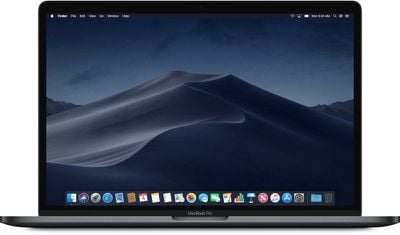Google's Project Zero team in November found a "high severity" macOS kernel flaw that was recently disclosed (via Neowin) following the expiration of a 90 day disclosure deadline.
As explained by Google, the flaw allows an attacker to modify a user-owned mounted filesystem image without informing the virtual management subsystem of the changes, meaning a hacker can tweak a file system image without user knowledge.

This copy-on-write behavior works not only with anonymous memory, but also with file mappings. This means that, after the destination process has started reading from the transferred memory area, memory pressure can cause the pages holding the transferred memory to be evicted from the page cache. Later, when the evicted pages are needed again, they can be reloaded from the backing filesystem.
This means that if an attacker can mutate an on-disk file without informing the virtual management subsystem, this is a security bug. MacOS permits normal users to mount filesystem images. When a mounted filesystem image is mutated directly (e.g. by calling pwrite() on the filesystem image), this information is not propagated into the mounted filesystem.
According to Google, Apple has not yet fixed this issue. Apple is planning to implement a fix in an upcoming software update, however.
We've been in contact with Apple regarding this issue, and at this point no fix is available. Apple are intending to resolve this issue in a future release, and we're working together to assess the options for a patch. We'll update this issue tracker entry once we have more details.
Google released the details on the bug without a fix from Apple because of its Project Zero policies. After discovering a security flaw, Project Zero provides details to the company that makes the software, providing them with 90 days to fix it before disclosure.
Google then publicly shares details on security flaws when a bug is fixed or when the 90-day deadline expires. Apple was informed of the bug in November, and the 90 day period elapsed without a fix.
Mac users should, as always, be wary of the files they're downloading to avoid attacks like this, making sure to download files only from trusted sites. It's not known if this is a bug that's easy to exploit, but Google has marked it as severe because it has the potential to bypass macOS safeguards.




















